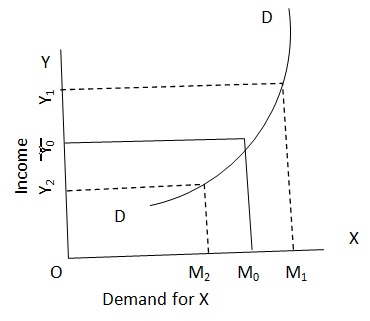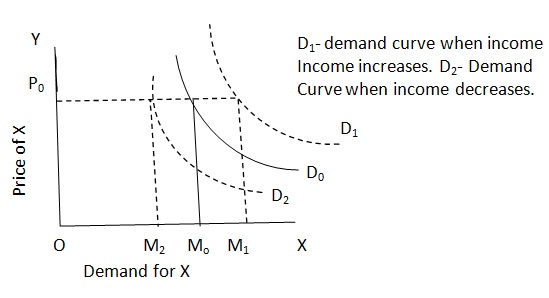Besides the price level, income of the consumer greatly affects the demand for a commodity. Given the price, if the consumers have a higher income, they can afford to buy more of it. Thus at higher incomes or increased income levels, the demand will be generally high. But if consumer’s income is low or that there has been a fall in income levels, generally the demand for the commodity will be lower.
This relationship between level of income and the demand for a commodity is known as income demand. Generally, the demand for a commodity changes in the same direction as change in income; a higher level of income – leading to larger demand and a smaller income resulting in a fall in demand. The income- demand relationship.
The quantity of the good X is measured on the X-axis and the consumer’s income is shown on the Y-axis. when the income level is OY0, the quantity demanded is OM0. But if on the other hand, income level comes down to OY2, the demand for X also falls to a lower level of OM2.


This can be seen in another way as in with a given income level and price of X being OP0, demand for X is OM0. When income rises, even though price of X still remains OP0 , demand curve shifts upwards as more of (OM1) is now purchased at higher income. Similarly when income level goes down, demand curve moves down to D2 and lesser quantity of X (OM2) is purchased. Thus with changes in income, level of demand also changes.
SUBMIT ASSIGNMENT NOW!